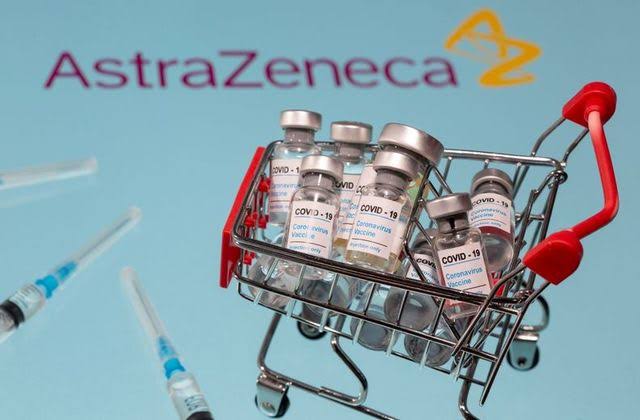Over 15 countries have, at the last count, slammed a sispension on the use of AstraZeneca’s Covid-19 vaccine while others particularly Nigeria continue to vaccinate their citizens with the same jab.
Statistics from the Nigerian government showed that over 800 people, including President Muhammadu Buhari and his vice, Professor Yemi Osinbajo, have received the vaccine in the country as at Tuessay, March 16, 2021.

The suspension, though temporary, was implemented over fears the AstraZeneca vaccine might have caused some recipients to develop blood clots.
Several countries, mostly European, have temporarily suspended the use of AstraZeneca’s Covid-19 vaccine over fears it may have caused some recipients to develop blood clots.
The measures come despite assurances from the British-Swedish multinational, EU regulator the European Medicines Agency (EMA), and the World Health Organization (WHO) that the jab is safe.
The WHO’s Advisory Committee on Vaccine Safety is reviewing available data and is meeting with the EMA on Tuesday.
The EMA will convene its own expert safety committee on Tuesday and will hold another meeting on Thursday to decide any necessary actions. Here is what you need to know:
Which countries have stopped using the vaccine, pending investigation?
More than a dozen countries have suspended use of AstraZeneca’s shot.
Austria was first, pausing the use of a batch of the vaccine on March 7 while investigating a death from coagulation disorders and an illness from a pulmonary embolism.
Days later, Denmark stopped administering the shot altogether after a 60-year-old woman died of a blood clot after receiving the jab.
Norway announced it was also suspending AstraZeneca over reports of possible serious side effects, including bleeding, blood clots and a low blood platelet count.
Iceland, Bulgaria, Ireland and the Netherlands later said they were halting rollouts, followed by Germany, France, Italy and Spain.
Sweden and Latvia became the latest to announce a pause on Tuesday.
Outside Europe, Indonesia and the Democratic Republic of the Congo have stopped the rollout.
Why have they halted its use?
When vaccines are rolled out widely, scientists expect some serious health issues and deaths to be reported because millions of people are being inoculated and random problems would be expected in a group so large.
The vast majority of these end up not being connected to the vaccine but, because Covid-19 vaccines are still experimental and there is no long-term data, scientists must investigate every possibility that they could have unforeseen side effects.
Is the vaccine safe?
In response to the suspensions, AstraZeneca said on Sunday it had reviewed the data on 17 million people who received doses across Europe and found 37 cases of people who developed blood clots as of March 8.
It said its findings showed ‘no evidence of an increased risk’ of blood clots in any age group or gender, adding: ‘This is much lower than would be expected to occur naturally in a general population of this size and is similar across other licensed COVID-19 vaccines.’
The EMA said last week there was ‘no indication’ that AstraZeneca’s shot caused the blood clots, which are not listed as a possible side effect of the vaccine.
On Monday, the EMA said it was continuing to probe any possible link between the jab and reported incidents of blood clots and that, while its review continues, it still feels the benefits of the vaccine outweigh potential risks.
WHO chief scientist Soumya Swaminathan said on Monday there had been no documented deaths linked to COVID-19 vaccines and called on people not to panic.
Swaminathan added that so far, no link had been found between the vaccine and ‘thromboembolic events’ reported.





